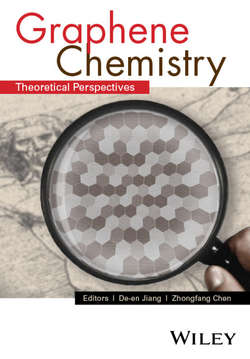Описание книги
What are the chemical aspects of graphene as a novel 2D material and how do they relate to the molecular structure? This book addresses these important questions from a theoretical and computational standpoint. Graphene Chemistry: Theoretical Perspectives presents recent exciting developments to correlate graphene’s properties and functions to its structure through state-of-the-art computational studies. This book focuses on the chemistry aspect of the structure-property relationship for many fascinating derivatives of graphene; various properties such as electronic structure, magnetism, and chemical reactivity, as well as potential applications in energy storage, catalysis, and nanoelectronics are covered. The book also includes two chapters with significant experimental portions, demonstrating how deep insights can be obtained by joint experimental and theoretical efforts. Topics covered include: Graphene ribbons: Edges, magnetism, preparation from unzipping, and electronic transport Nanographenes: Properties, reactivity, and synthesis Clar sextet rule in nanographene and graphene nanoribbons Porous graphene, nanomeshes, and graphene-based architecture and assemblies Doped graphene: Theory, synthesis, characterization and applications Mechanisms of graphene growth in chemical vapor deposition Surface adsorption and functionalization of graphene Conversion between graphene and graphene oxide Applications in gas separation, hydrogen storage, and catalysis Graphene Chemistry: Theoretical Perspectives provides a useful overview for computational and theoretical chemists who are active in this field and those who have not studied graphene before. It is also a valuable resource for experimentalist scientists working on graphene and related materials, who will benefit from many concepts and properties discussed here.
